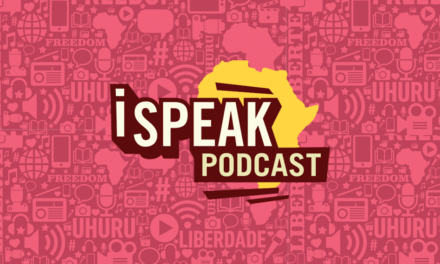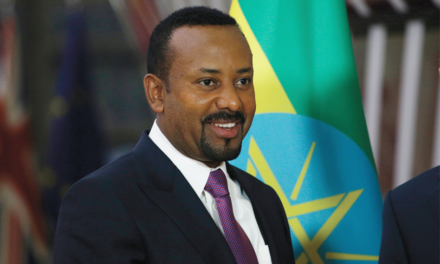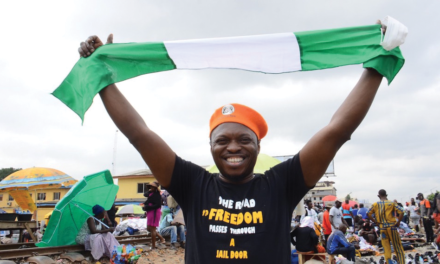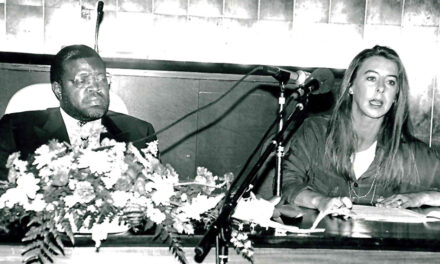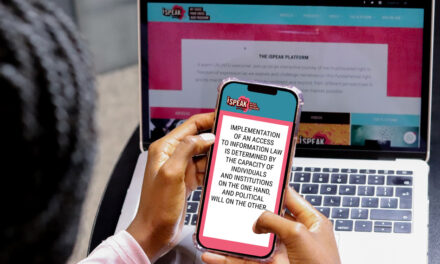
Exiled for offending the King
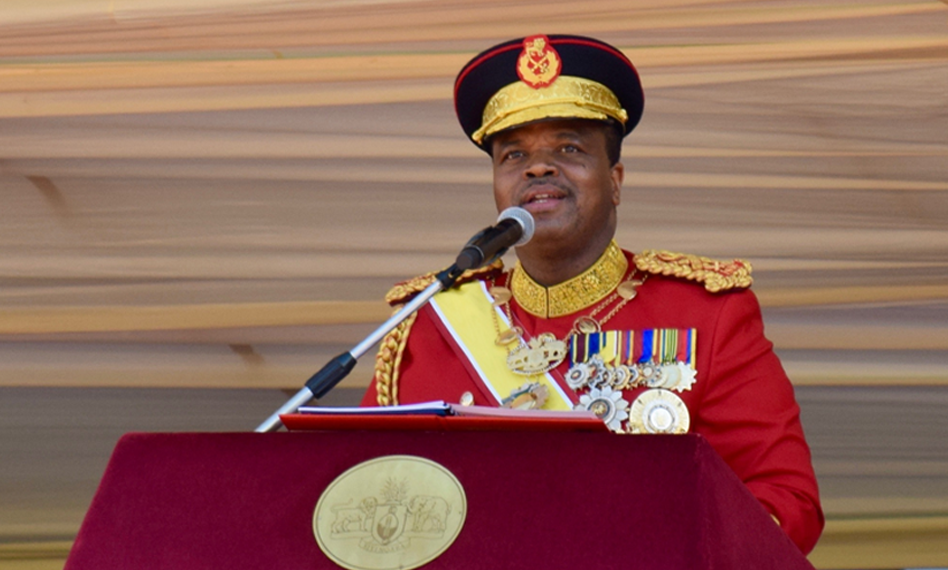
Publishing informative and critical articles that touched on the king and governance issues led to me being branded a revolutionary journalist and being forced to go into exile by King Mswati III’s police officers. The Royal Eswatini Police officers raided my house without a search warrant from 23 of April 2020 and several times more during ensuing days.
As the sun peeked over the horizon, I would be anxious about what would happen to me and my family.
During the first raid, I suffered bruises on the shoulders as I tried to escape through the window due to fear of being arrested and tortured by Eswatini Police officers. They came four times after, during the month of April 2020, armed with guns and forcefully entered my house and seized personal gadgets and documents, including a laptop, three cell phones, 12 notebooks and company documents.
“When we come back for you Eugene, we will leave you reeling in a pool of blood. Why do you criticise the king? Stop criticising the king,” threatened senior police Superintendent Clement Sihlongonyane during the interrogation. “Eugene’s case must be handled by a magistrate who has a history of giving harsh sentences. Let us find a magistrate who can do such a job, “whispered Sihlongonyane to his colleagues.
It was at this point that I realized that this was pure persecution.
On 24 April 2020, I left my house at 06:15 am to buy bread from a local shop. To my surprise, I received a phone call from a relative alerting me that the police officers were back again, fully armed with guns.
On that very day I had to sleep in a forest in fear of police’s continued torture and detention. For over five days in the forest, I had no food or roof over my head. I had to survive on bread alone.
Earlier before the raids and my exile, Eswatini police also had tried to force me to testify against the EFF Swaziland President Ncamiso Ngcamphalala who was my source of information on the many corruption scandals in Eswatini. I refused, hence the continued harassment, raids on my home and threats of arrest.
Opposition leader Ngcamphalala is facing charges of sedition, after I published an interview with him on the Swati Newsweek website. Section 24 of the Constitution of eSwatini promotes freedom of expression, but this right remains elusive as both journalists and sources of information are harassed. The police informed me that criticizing King Mswati III constitutes high treason.
Fearing for my safety, on May 5th, 2020 I used one informal crossing route in southern eSwatini to escape and seek asylum into South Africa. I took a risk at dawn and crossed the Mozane River.
On 30 May, 2020, Eswatini weekly publication the Independent News quoted the National Police Commissioner, William Dlamini, as having said that journalists writing negatively about the king would be muzzled. I took this as a reference to me and other journalists seen as troublemakers by the government.
My troubles began when I published various articles criticising the government’s response to the COVID-19 pandemic. In the first article, published on 8 April 2020, I published an article titled “King Reckless on Swazis’ Health”. In this article, the Swati Newsweek constructively criticized King Mswati’s government for failing to enforce social distancing in local hospitals when COVID-19 first hit Eswatini. The second article, which aggravated matters, was titled “King’s removal possible”. This story, published on 14 April 2020, was an interview which featured the president of the opposition party, Economic Freedom Fighters of Swaziland Ncamiso Ngcamphalala.
In this story, Ngcamphalala said eSwatini should have a constitutional monarchy, not an absolute monarchy. Linked to the statement by Ngcamphalala was a widely publicised statement made in December 2020, by EFF South Africa opposition leader Julius Malema, declaring that King Mswati III of eSwatini would fall.
The formation of EFF-Swaziland was inspired by the South African EFF led by Malema. I believe this might have scared King Mswati III; hence his police officers sought to silence Ngcamphalala and myself.
Honestly, it is difficult to work as a journalist in eSwatini. My action to leave followed a road well-travelled by many, such as the former Eswatini Observer, managing editor Musa Ndlangamandla who was forced to leave Eswatini in 2012.
The late eSwatini Prime Minister Barnabas Dlamini wanted him incarcerated for promoting democracy.
My story and that of many other journalists is an ongoing story of media repression in Swaziland. Ex Times of Eswatini newspaper journalist Andile Nsibande was assaulted by police officers while covering a workers’ strike in Nhlangano in August 2018. According to an article published by the Committee to Protect Journalists (CPJ) on 1 May, 2020, eSwatini Royal Police officers had arrested and tortured another exiled independent editor Zweli Martin Dlamini for writing critical articles about the absolute monarch in his Swaziland News online newspaper.
I find life in exile miserable as it is expensive to afford basic needs like quality healthcare, shelter, food and clothing and the fact that I can no longer practice journalism is depressing. I slept on a grass mat for 14 days when I first arrived in South Africa and later two good Samaritans lent me blankets and a wooden bed. I have faced attempts to rob me of my few possessions in exile and I cannot recall the times I have had to flee from criminals in Durban. I have realized that independent journalism is a crime in eSwatini. I later reported this matter to the African Union on 17 July, 2020 but I have not received feedback thus far.
On January 12, 2021 whilst still in exile, I was exposed to COVID-19. On the second day, my health deteriorated further; hence I visited a clinic for medical treatment. Luckily, I survived after treatment.
A case for reform
eSwatini must reform its repressive media and free expression laws and enforce legislation preventing police from harassing journalists and interfering with their work. All the 32 media and free expression laws in eSwatini must be amended and others repealed altogether. There is a need for a crisis committee for the media in eSwatini, tasked with helping journalists who have been arrested, exiled or jailed. Amongst its duties, the crisis committee could ensure that the safety of the journalists is guaranteed. I have been a victim of greedy lawyers who hike fees willy-nilly during cases. Journalism bodies must fight against such abuse and build solidarity networks that include regional and international media and free expression networks. Additionally, there is an urgent need for eSwatini journalists to be trained on safety issues on a regular basis. Furthermore, the Media Institute of Southern Africa (MISA) should identify a new generation of progressive Swazi journalists who will protect press freedom and support the call for democracy in eSwatini. These journalists should be assisted to establish their own websites to advance the course for good governance and democracy in eSwatini and report uncensored and informative stories.

